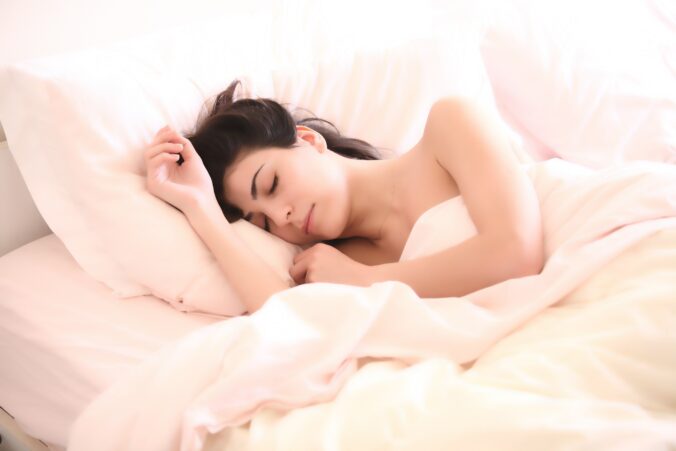How many hours of sleep do you get at night? Do you look at a screen 2 hours before bed? (smartphone, tablet, computer, or TV)
Sleep is arguably the most important, biggest bang for you buck many people in our current day and age can make. Regulate your hormones, decrease cravings, and keep your brain sharp all by dialing in your sleep.
There are three major components to sleep health:
- Sleep quantity
- Sleep quality
- Sleep rhythm
Quantity. Less than 8 hours/night on average is concerning. Less than 7 hours/night on average is an issue. I look for an average of 8 hours/night with a minimum of 7 on any given night.
Quality. Waking up in the middle of the night is concerning. Sleep apnea is concerning. Your brain cycles through different types of activity throughout the night. Each of these sleep “phases” has it’s own purpose. As the night goes on, you get more and more “deep sleep”… unless you’re woken up.
Rhythm. Waking up at different times each day is concerning. Also worth noting is the circadian rhythm, which is basically your body’s internal clock. It takes the light from the sun and the activities you’re doing to decide what time of day it is. When it’s late, you secrete melatonin that makes you sleepy. When it’s time to get up, you secrete cortisol that makes you mobilize energy.
If, however, you live circa the 2000s, you now have blue-violet light everywhere: phones on the nightstand, TVs in the bed room, and fluorescent lights in the hallway. These handy little gadgets tell your brain that it’s still daytime… and drastically interfere with sleep habits.
Even if you don’t have trouble falling asleep, being on your phone or computer before going to bed prevents you from reaching deeper sleep. And hopefully you don’t leave the phone screen on while you’re actually sleeping…
Sleep health prescription
Bolded items are most important.
- Wake up at the same time every morning
- Try to go to bed at the same time every night
- Get at least 7 hours of sleep each night
- Average 8 hours of sleep each night
- Make those hours roughly coincide with sunrise and sunset
- Eliminate electronics two hours before bed time
- Keep electronics out of the bedroom
- The bed is for sleeping and fun stuff, not for work
- Buy a red light bulb for your lamp if you need light
- Get blue blocker glasses. I will use less light, red light, AND blue blocker shades to eliminate all the blue light
- Get the right mattress and pillows.
- If sleeping on your back, prop a few pillows up under your knees to take tension off of your low back
- If sleeping on your side, hug a pillow with your knees and another pillow next to your chest.
- Don’t sleep on your stomach.
- If you have sleep apnea, you may need to see a qualified dentist to see how they can help
- Do something relaxing before bed, like yoga, breathing exercises, or read a book
Resources
How to use your red light bulb
This is a video I did showing you some options to improve your nighttime lighting at home to improve your restfulness.
Weight Loss and Sleep: Is There a Connection?
- Sleeping poorly, or not enough, slows the body’s metabolism.
- Poor and insufficient sleep make the body inclined to store calories as fat.
- Poor sleep increases appetite.
- Poor sleep can make it harder to make healthy food choices.
There are a number of peer-reviewed studies linked in the article, as well.
Variations in the sleep–wake cycle from childhood to adulthood: chronobiological perspectives
This article has a good set of figures for regular circadian rhythm, cortisol, and melatonin levels.
Manipulating the sleep-wake cycle and circadian rhythms to improve clinical management of major depression
Another good figure of normal hormone levels and sleep, but with a look at depression.
How Blue Light Affects Your Eyes
This is from a company that makes blue light-blocking glasses, but provides a clear overview of the topic.
